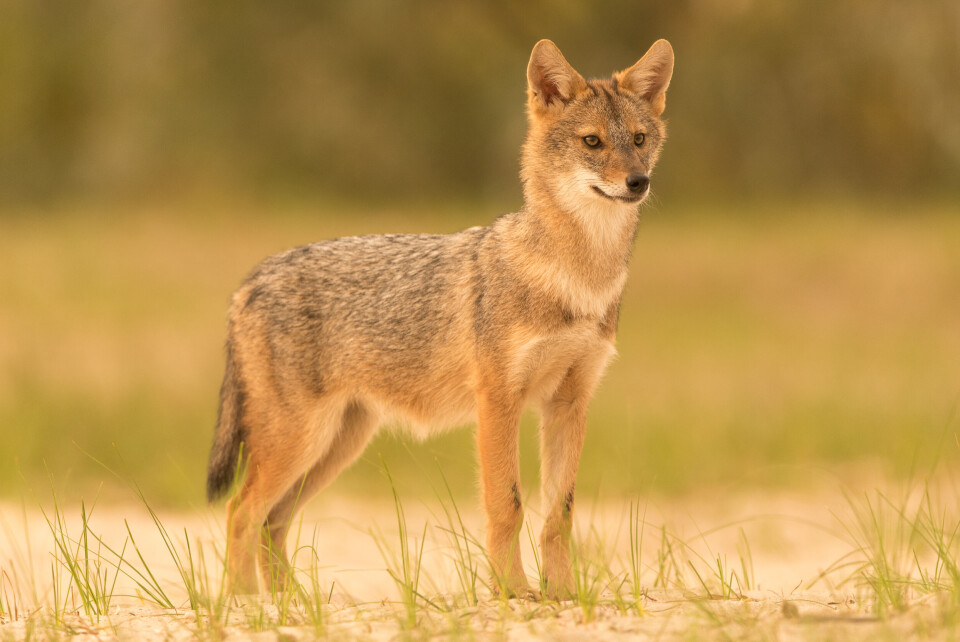-
Farmer protests in France: A64 motorway blockaded again as ‘emergency law’ announced
Local union branches are protesting nationwide but unions are divided on next steps
-
French farmer protests: renewed road blockades and demonstrations as Mercosur anger remains
Farmers from all unions are protesting, with new action including truck inspections at Le Havre port and on motorways
-
Farmer protests to continue despite France opposing Mercosur trade deal
French opposition to free-trade deal did not swing scale on key vote
Wildlife experts have spotted golden jackals for first time in France
While jackals do not venture into towns, farmers are warned to protect small or newborn livestock - we describe how to identify one of France’s newest species

Naturalists have spotted golden jackals in France for the first time.
The animals, native to the Middle East, India, Turkey and Arabia, have been steadily colonising western Europe since the last century, moving through Hungary, Romania and Bulgaria to Italy and Switzerland, and finally across the border and into France.
They have been sighted, using camera traps, in the northern Alps, Bouches-du-Rhône and Deux-Sèvres since 2020.
Jackals choose areas with lots of food
Stéphanie Morelle, from France Nature Environnement, said: “They have arrived all by themselves.”
Young adults can travel for several hundred kilometres looking for suitable territory to colonise.
They do not venture into urban areas, but can tolerate climates ranging from humid to quite dry.
In recent years, they have taken over areas which used to be dominated by wolves.
Wolves are not their predators but they are bigger and such efficient hunter/scavengers that they do not leave much over for a jackal population.
“Jackals will establish colonies in quiet areas with plentiful food,” says Ms Morelle.
“They prefer lower plain lands to high mountain areas and, like foxes and wolves, are opportunists.
“Being small, they do not attack flocks of sheep although they might try for an unguarded newborn lamb.
“They will raid a chicken shed if they can get inside, but in much of eastern France people are already protecting sheep and chickens from wolves, so they are automatically also protecting them from jackals.”
Education and support needed
She says that learning to live with wolves and jackals is an ongoing process.
While attracting new species is a positive development, the systems in place to help farmers protect their livestock are currently far from perfect.
“The fact that farmers cannot get grants until the danger is proven effectively means they have to wait for a first attack before they can get help.
“I think more education and support is needed too.
“Just giving someone fences and leaving them to get on with it is not enough.
“People also need help on how best to use the fencing and how to train guard dogs, which are not the same as shepherd dogs that herd a flock.
“A guard dog needs a completely different approach.”
Golden jackals have distinctive markings
Golden jackals help keep the countryside clean in the sense that they will eat any carcass they come across.
They also hunt mice and rats, rabbits, hares, birds, reptiles, amphibians, insects, and will eat birds’ eggs and fallen fruit if they find them.
Needless to say, they will also investigate a rubbish bin, given half a chance.
The jackals are mainly nocturnal and hard to spot, though they are distinctive, with fawn coats and darker grey/black markings on their backs and the edges of their ears.
They have shorter, bushier tails than foxes, large pricked-up ears, and two golden or cream bands around their necks.
Related articles
Video: Wild wolf spotted in Brittany for first time in 109 years
Endangered vultures have laid eggs for the first time in French Alps
Protests as French farmer fined €100,000 over smelly and noisy cows
























